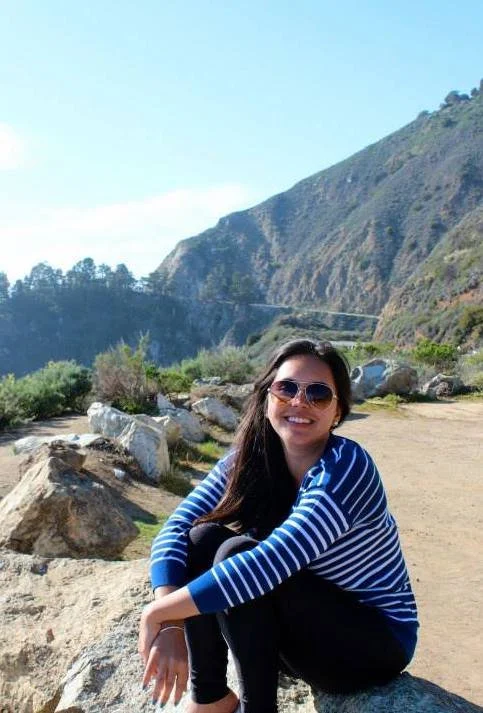Long May You Run
What happens when going ‘home’ makes you feel like even more of an outsider?
“Never before have I read something so relatable that delves into all concepts of what we call ‘home’ and how we can feel like we are from ‘everywhere and nowhere at the same time.’ TCKs, prepare to have all your identity crisis questions explained! And if you’ve not had an identity crisis yet… get ready.”
— Lindsay Varty, author of Sunset Survivors
A BOOK FOR GLOBAL SOULS
Designed to help TCKs struggling with where to go next, this collection of original essays explores everything an international childhood brings. It also unpacks the question haunting many TCKs: where do you belong when you’ve grown up everywhere?
Over the years, I’ve contributed to TCK magazine Denizen among other publications. Having lived in Hong Kong, New Zealand, Malaysia and Australia, I am now based between London and Hong Kong.
I wrote this book for anyone who can relate to the following sentiment: you feel at home everywhere (on good days) and nowhere (on bad days). You feel connected to an international identity instead of a national one.
You have friends from too many different countries to count (you’ve never even tried counting). When asked where you’re from, you have multiple potential answers, depending on how much you feel like engaging with whoever’s asking.
“This was such an engaging read - I highly recommend it to any ‘global nomad’. This book sheds great insight into the joys, heartaches, and potential behavioural impacts of growing up in a rich cultural world of joy, unity-in-difference, love and loss. Reading this book provides acknowledgement, insight, and release.”
— SER (full review here)

Interview with Hong Kong Living
“I found that embracing an international identity brought me a lot of peace. Yes, I have a weird accent; yes, I’m still not fully sure where exactly I ‘come from’ but it’s okay.”
EXCERPT: WHAT IS A TCK, ANYWAY?
It was the start of Form 2 (seventh grade) in Hong Kong. Our form teacher Mr. Goodman had asked us to write a short essay introducing ourselves. We had to include five fun facts that were about what made us unique. I couldn’t wait to begin, and later, at home in my bedroom (where I had lobbied to put the prized family desktop computer), I furiously typed away on the black keyboard keys.
About an hour later, I leaned back from the looming wooden cage that housed the computer (IKEA’s ‘light pine computer stand’) and proudly looked back over my work.
“What are you up to, darling?” Mum asked casually as she walked past my room on her way to the living room. I quickly looked at the piece and decided it was ready for an audience.
“Oh, just this essay for school,” I said. It felt so grown-up to say that. Kids didn’t write essays. Teenagers did. I was so close to being one. Although I wasn’t too grown-up to tell Mum, “You can read it if you want.”
She came into my room and started reading the piece over my shoulder. I couldn’t wait to hear her feedback as I thought the essay had perfectly summed me up. After a few minutes of silence, she made a funny noise that sounded like a sigh.
“Are you sure you want to include this?”
She pointed at a sentence on the screen from the opening paragraph, which proclaimed, “I like books and I have brown skin.”
“How do you, ah, feel about your skin colour?” She asked. I shrugged. I didn’t have feelings about it. I just wanted to add some physical description to the essay in case Mr Goodman didn’t know who each of us was just yet.
I left the sentence as it was. The essay was perfect.
If I were to write an essay introducing myself these days, I’d wish for the confidence of my 12-year-old self. While I might not phrase things the same way, those two defining features haven’t changed. What has changed is that over the twenty or so years between Form 2 and now, I’ve had plenty of time to think about the importance of books and skin colour.
I was born in Hong Kong to a Malaysian mother and a Kiwi father and went to a French school until I was 13. My family and I moved to Auckland, where I did high school, then I moved to Melbourne for university. That’s where, while researching a sociology essay one afternoon in the campus library, I discovered the definitive book on Third Culture Kid living by David C. Pollock and Ruth Van Reken, along with this landmark quote:
“A Third Culture Kid (TCK) is a person who has spent a significant part of his or her developmental years outside the parents’ culture. The TCK builds relationships to all of the cultures, while not having full ownership in any. Although elements from each culture are assimilated into the TCK’s life experience, a sense of belonging is in relationship to others of similar background.”
I was 17 at the time. When I found that TCK book, I felt like a light came on in a dark room I’d never really gone into inside my head. Finally, there was some explanation for something I’d been waiting for my whole life – there was a name for global nomads, who belonged everywhere and nowhere.
“Well-written and engaging. I raised my kids outside my passport country. They are now grown. This memoir was engaging and communicated some profound truths about the TCK experience. I recommend it to anyone who grew up outside their parents’ home country and the parents raising kids outside their home culture.”
— Mack


